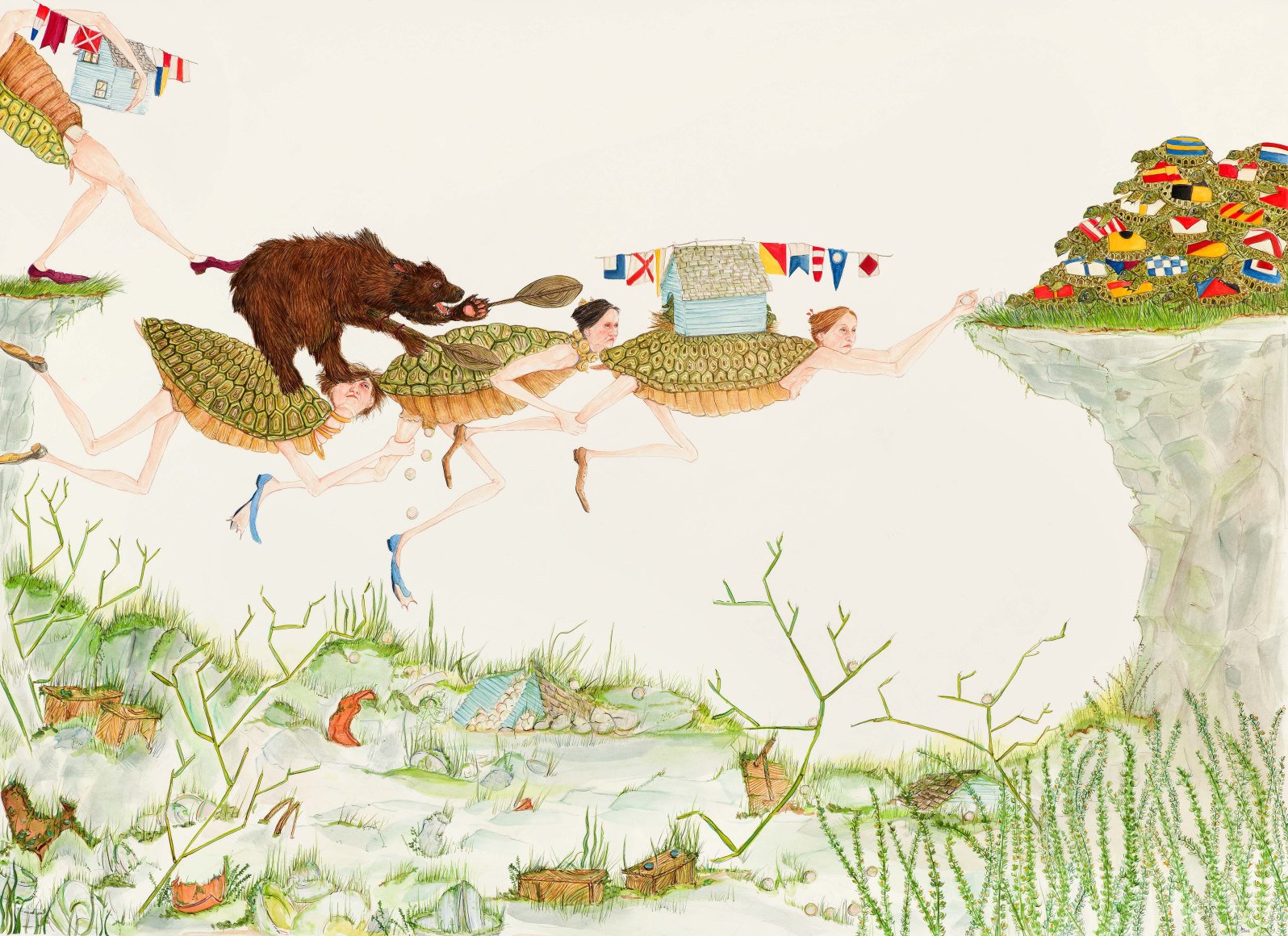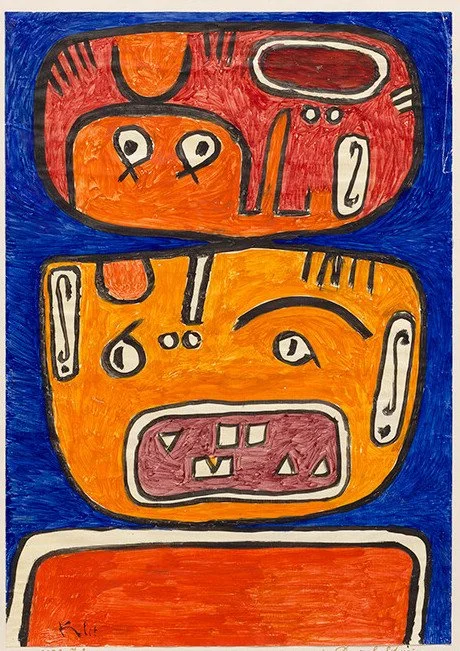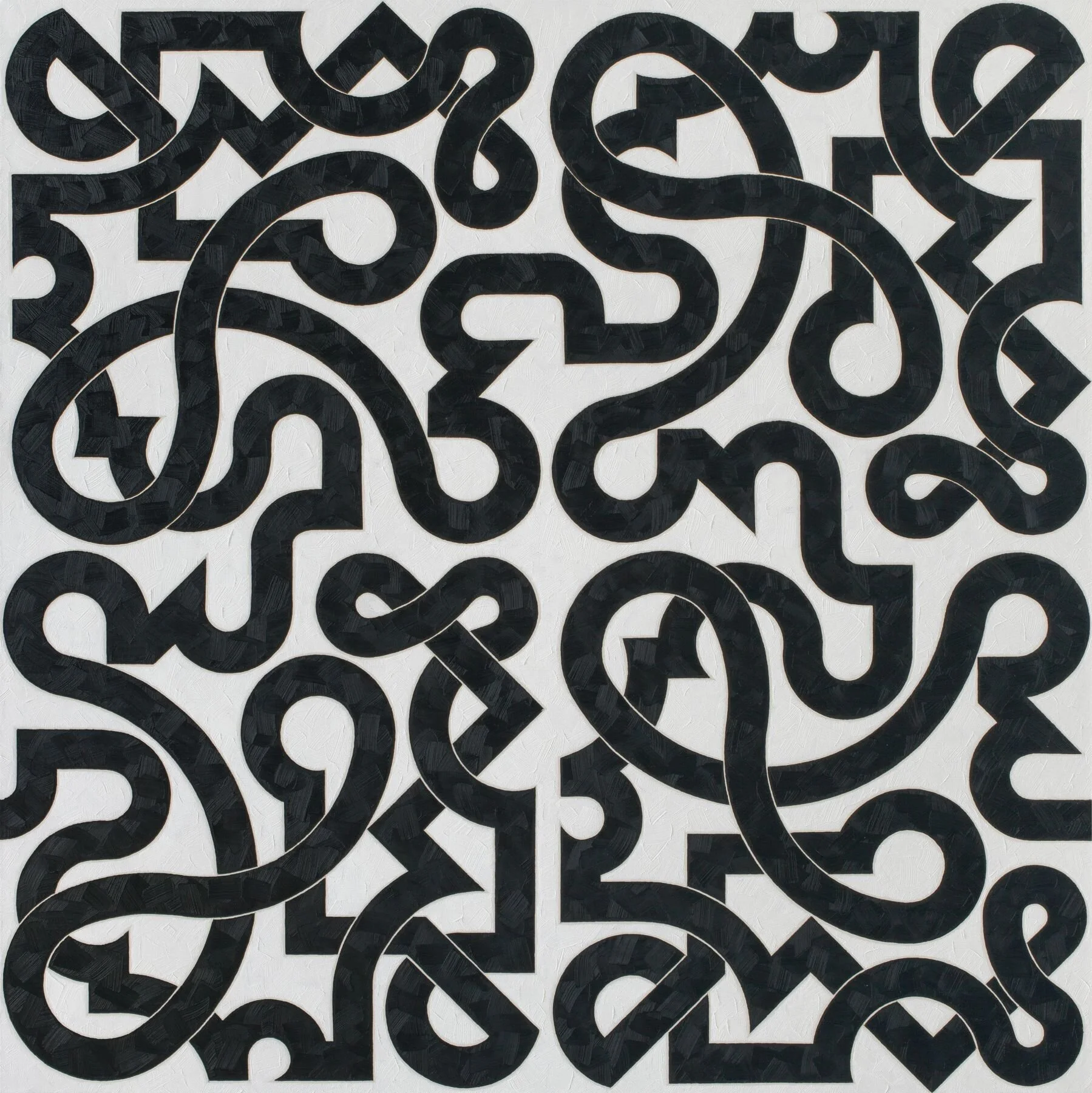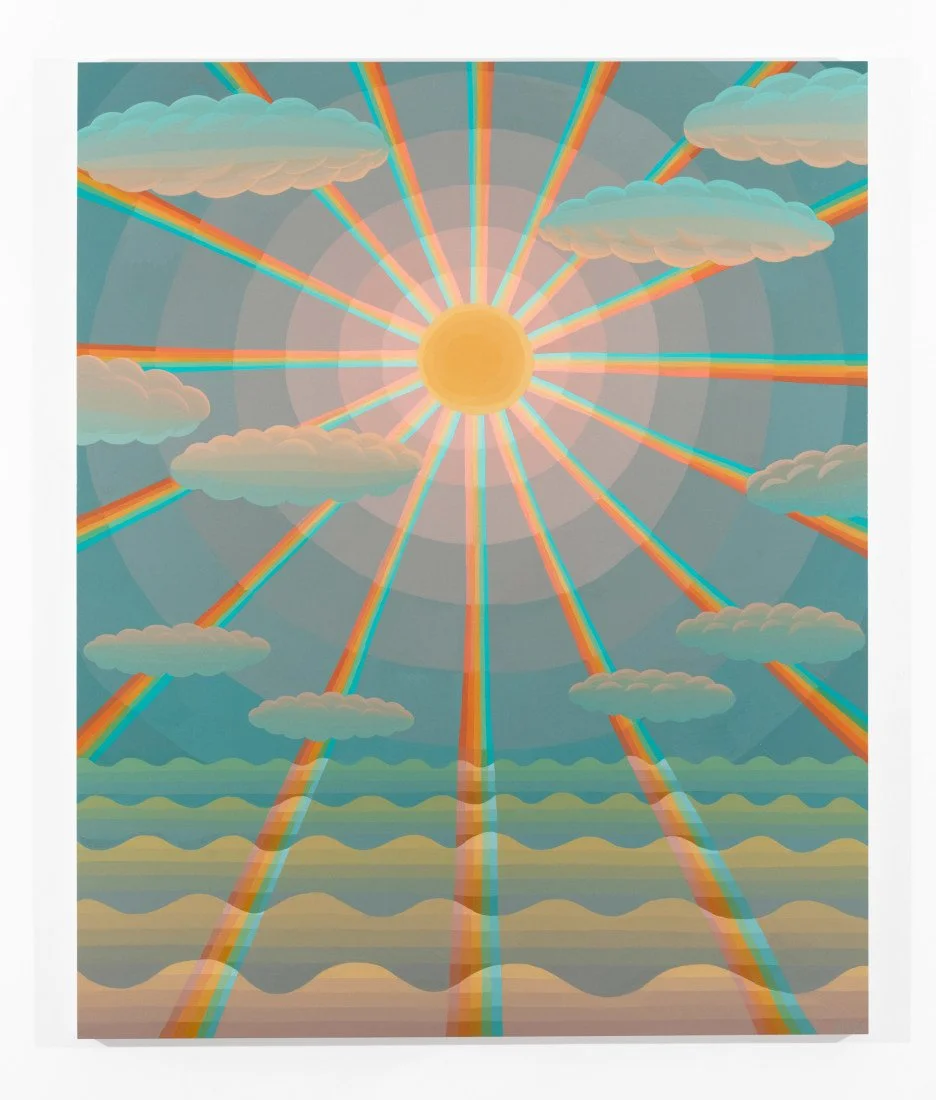Amy Cutler
“Limbo”
New York, 535 West 22nd Street
Known for her intricate, narrative paintings and drawings of women and hybrid beings absorbed in enigmatic tasks, Cutler’s latest works evoke points of transition. Her reoccurring, symbolic imagery gives form to latent thoughts and feelings, building a layered world of visual metaphors. Images of horses, turtles, boats, and travelers’ bags reoccur, invoking themes of time, movement, and progress––often impeded. These surreal narratives make sharp observations about individual and collective struggles, obsessions, and dilemmas. The burdens carried and labor performed by the women in Cutler’s paintings are suspended in action, leaving the viewer to draw their own conclusions.
Turtle Bridge, 2023 Gouache on paper 20 1/16 x 27 9/16 inches
Cutler often eliminates the context of setting, placing her figures in a totally white ground or sparse landscape. In her latest paintings, orange clouds and gradient skies evoke atmospheres of transition. Elongated trees emerge from the background, taking on figurative elements, and in Abettors (2024), are fully anthropomorphized into action.
In these highly detailed works, Cutler also uses textiles and patterns to create additional resonances. Through her diverse array of visual and art historical references, from Japanese Sashiko stitching and Anni Albers textiles, to American quilts and early 20th century photography, Cutler uses material culture to draw lines from the past to the present.
The staging of bodies in Cutler’s work shares a sensibility with contemporary dance, particularly the choreography of Pina Bausch. Elements of sound and movement are central to her compositions. Cutler comments, “I often create situations that might be the result of something breaking or collapsing. I think about what noises the objects would make and draw the aftermath. Sometimes I include things that have the capability to make loud destructive noise, such as unlit fireworks. I want to create an atmosphere that has hidden pieces of unrest.”







